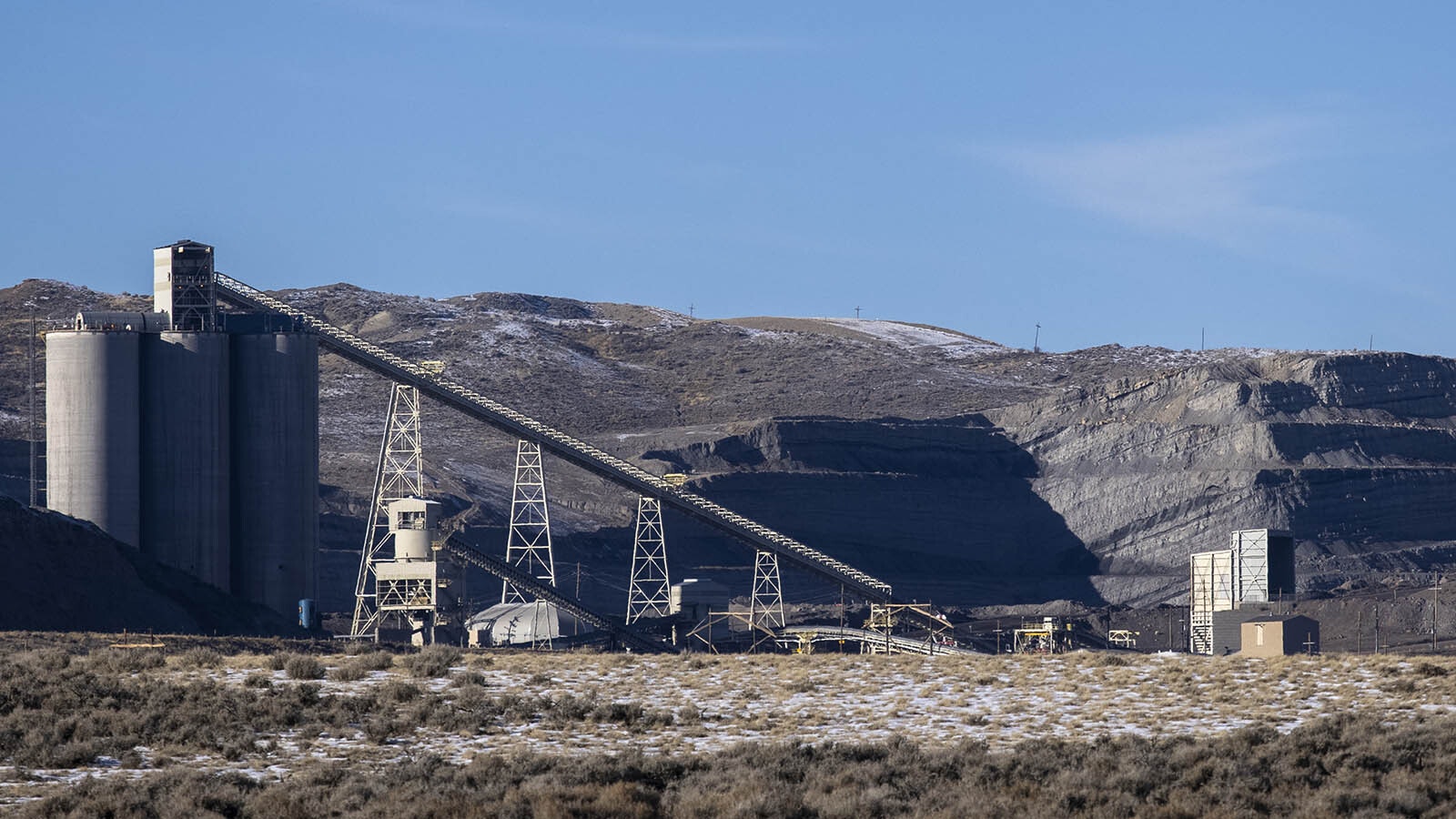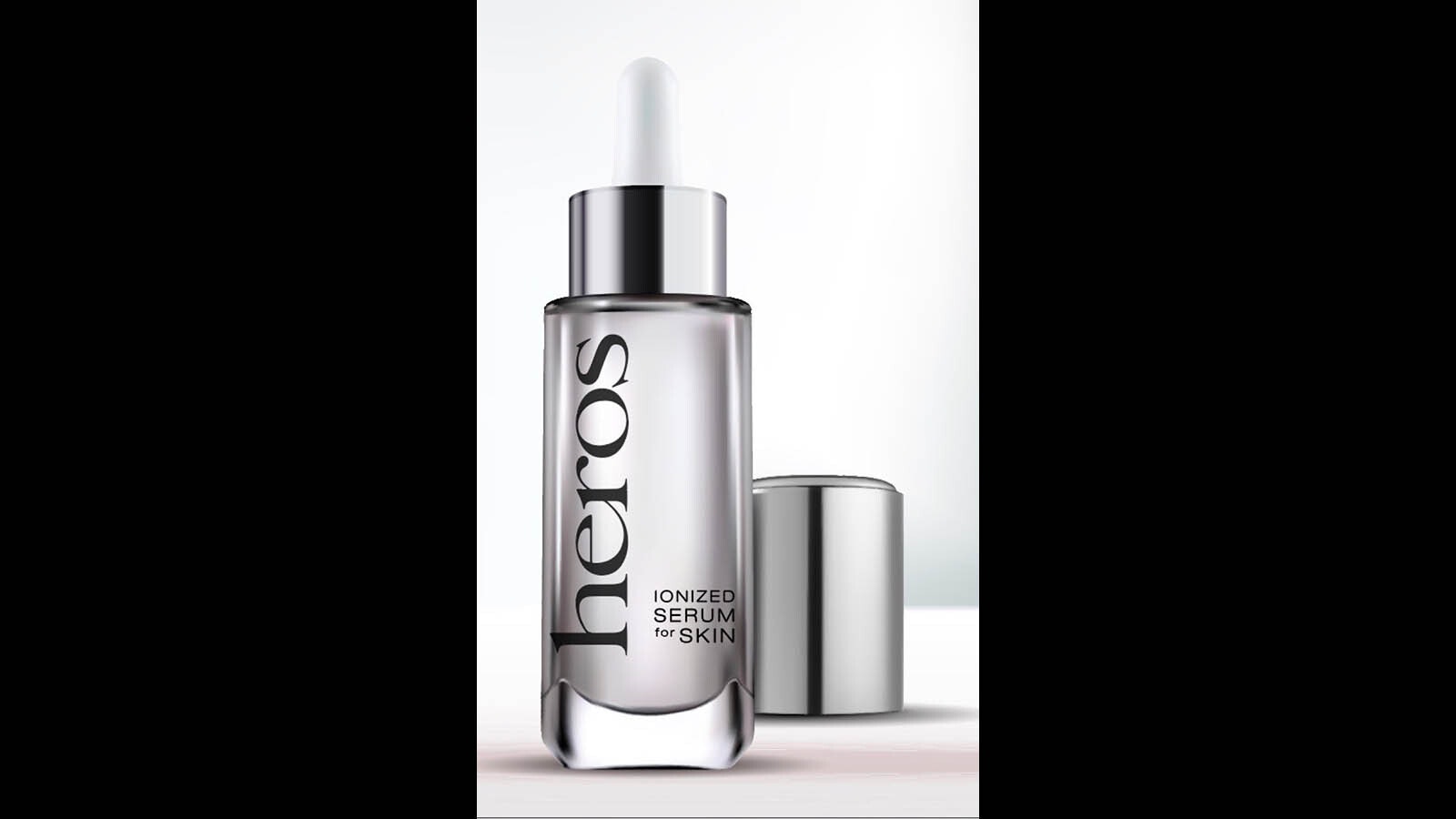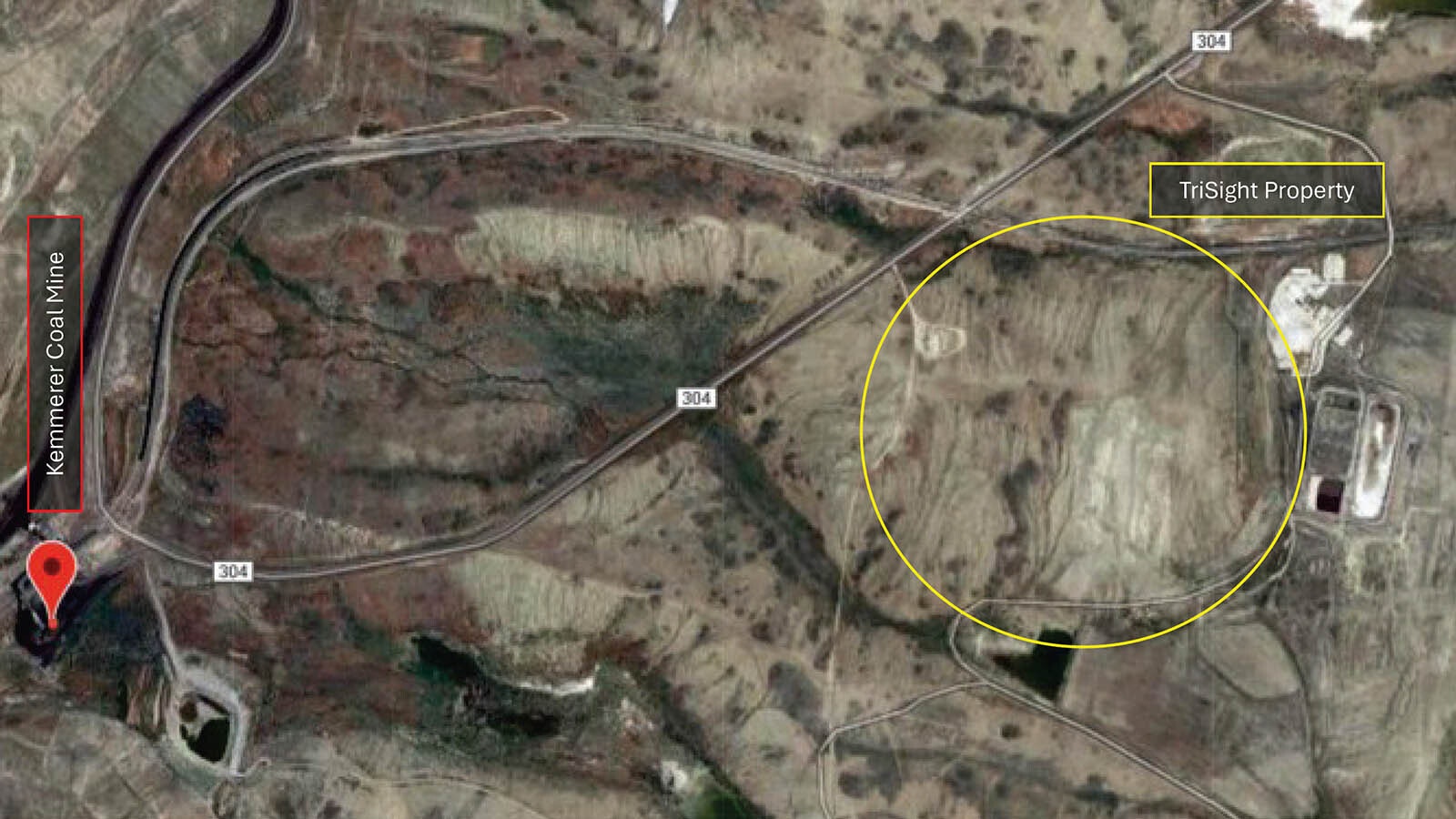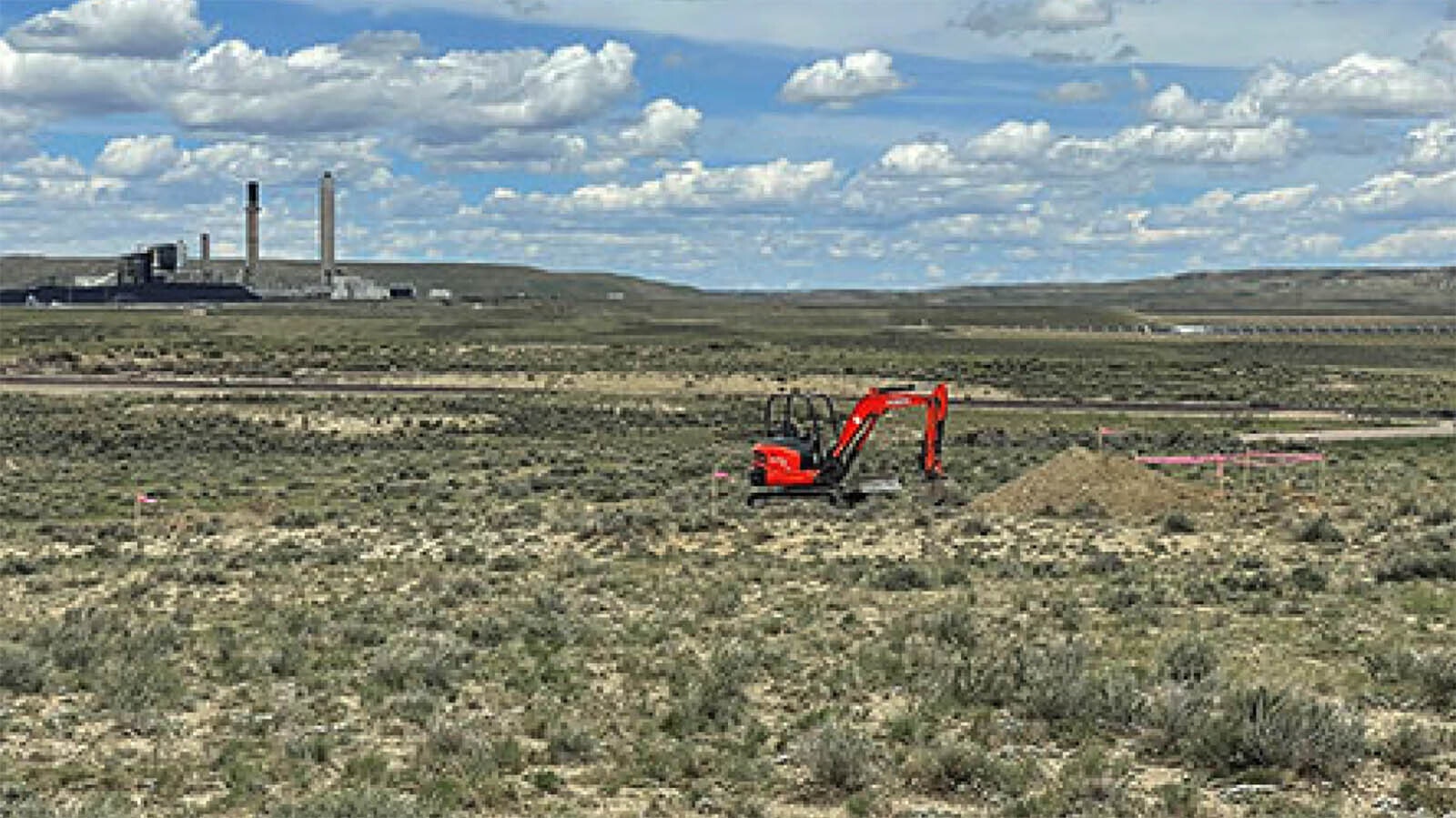Wyoming coal supplies power for millions of Americans, provides thousands of high-paying jobs and ... could be the secret to achieving silky smooth and healthy skin.
That's what a group of investors willing to spend serious money is betting on.
The buzz in southwestern Wyoming is that the next skincare capital of the world could be Kemmerer, a scrappy southwestern Wyoming town known for coal mining and as the birthplace of James Cash Penney’s department store chain from the banks of the Hams Fork River.
Pushing aside big-name skincare makers like Revlon, Unilever or Estée Lauder, the next line to blow up on the skincare scene could be called “Heros,” a serum that purports to have magical qualities to make your skin look smooth and silky.
A disparate group of well-heeled investors out of Utah, Idaho, Florida, Maine and Wyoming with hundreds of millions of investment dollars have bought 136 acres of land and are digging up the landscape near the Naughton coal-fired power plant to pave the way for their skincare line, among other projects to repurpose coal that they have in mind.
The investors are called TriSight AG LLC, a technologies company with a “green” vision for coal that has on its drawing board plans to turn some of the coal dug up at the adjacent mine owned by Kemmerer Operations LLC into a nutrient for skin to smooth out lines or wrinkles.
“In some ways, I guess you could call us ‘green’ and clean coal activists,” said TriSight President Brad Barham.
Coal 2.0
Skincare isn’t the only thing TriSight has on its mind, Barham told Cowboy State Daily.
Other markets include nutrients for agriculture — like for barley — curing pink eye in cattle and regenerating burnt and blackened land left behind by the frequent fast-moving wildfires that have torched forests and grasslands throughout the Western United States.
For sure, coal is at the center of TriSight’s project.
The skin nutrient will be manufactured by taking a lump of coal and turning it into an organic, such as nutrient for cosmetics and body care products, Barham said.
Barham has experience in handling complex business models. He has stitched together a financial career where he’s as comfortable navigating technology firms in the San Francisco Bay area and the Silicon Slopes in Salt Lake City as he is in driving over the rural roads near the Naughton power plant and doing a business deal with politicians in Kemmerer, Diamondville and Lincoln County who are starved to find ways to diversify their energy-dependent economies.
Sandy, Utah-based TriSight is juggling many projects to turn coal into something “green” rather than burning it for power generation.
There’s a long explanation that Barham anxiously delivers on humic and fulvic acids — derived from coal — that can be used in skincare, sunscreen and has been studied for its anti-inflammatory benefits.
There are other benefits of converting coal to humates, which are composed of various forms of carbon that are most often derived from peat and coal.
Farmers can use the nutrients from humates to release nutrients like nitrogen, iron and potassium that are tied-up in the soil. These nutrients are often abundant in the soil, but not usable by plants until a product like humate is applied.
With these business models, Barham can easily become lost in explaining pyrolysis to heat coal at super-high temperatures in phases without burning it.
Wraps Coming Off
Nonetheless, TriSight is beginning to take the wraps off of its secretive work in the area around Naughton.
TriSight is providing a Midas touch to a few lines of business for nutrients designed to rejuvenate agriculture, ranching and skincare.
On the land that it bought from Lincoln County, Barham explained that it began carving up some of property near the Elko entrance to the Kemmerer coal mine last summer, though it halted the work while it replaced one of its financial backers.
The $10 million project is expected to resume this summer, with construction of a 15,000-square-foot carbon advancement center to be completed next year, Barham said.
Over the next few years, there are other projects planned that could see capital expenditures on expansion near the site or elsewhere rise to $45 million to convert carbon dioxide to carbons, and $400 million to $1.2 billion for the pyrolysis process of converting coal to advanced carbon materials, Barham said.
For now, however, the project is beginning with small but opportunistic growth in the skincare, agriculture and ranching sectors.
Cosmetics Just A Start
The owners of technologies in these sectors will pay "toll fees" to TriSight to use its center, with plans for expansion to include warehousing for the skincare products and other handle other research and manufacturing.
Overall, more alternative products for coal will come to the center, with plans for more land to eventually be acquired, Barham said.
The skincare line Heros — without the “e” — is already up and running and getting some funding from a scientific savant investor in the Cody area, he said.
The name of Heros comes from a suggestion by Barham’s wife, Mindy, who formerly worked with British e-commerce retail giant The Hut Group, where she briefly ran a cosmetics line. The home runs in the industry were referred to as “heroes,” though the “e” was dropped and is pronounced “here-os” as part of the company’s marketing and branding style.
TriSight is essentially made up of three technology and financial saavy executives.
Barham, who earned his spurs in the technological world, has founded five companies.
The other two co-founders include Rob Bennett, head of TriSight operations, who has navigated his career in banking circles, and Garry Spencer, head of strategy, who began his career in the field of engineering, operating a submarine nuclear power plant for the U.S. Navy.
Bennett’s father was the late Sen. Bob Bennett, a Utah Republican who was a huge supporter of nuclear energy and oil and gas drilling.
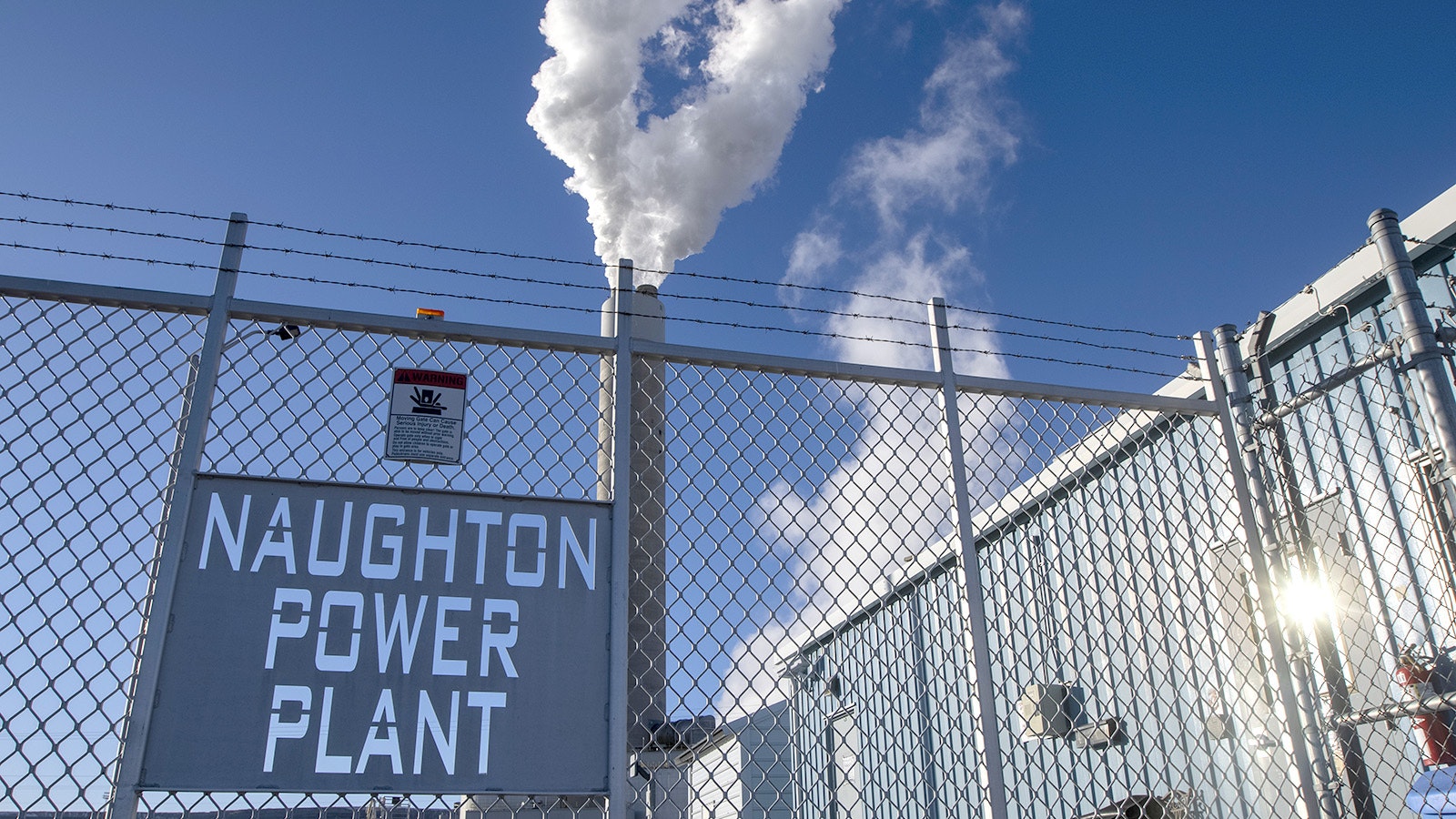
Billionaire’s Row
More than four years ago, TriSight began discussions with Lincoln County commissioners over alternative business models to keep its local coal mine going.
While Kemmerer Operations has a variety of plans underway to keep digging the coal, converting the Naughton coal-fired plant to a natural gas-fueled one worried local politicians and future prospects. The Warren Buffet-backed PacifiCorp owns Naughton.
In recent years, local politicians have focused their attention on the lineup of big energy companies that have committed throwing billions of dollars into building new factories along U.S. Highway 189 south of Kemmerer and Diamondville.
“TriSight didn’t exist prior to our meetings with Lincoln County,” said Barham, who noted that his business actually bought land near Naughton before TerraPower announced its preferred site for the Natrium reactor demonstration project back in November 2021.
The 2.5 million-ton producing coal mine could close down if a new business idea doesn’t catch on, he said.
Preparation for some construction work on non-nuclear aspects of the Natrium reactor project are in the very early stages along the highway. Survey stakes are visible from the road.
The Bill Gates-based TerraPower announced in March that it filed plans to build the reactor with the U.S. Nuclear Regulatory Commission. Its reactor demonstration project could become the prototype for future orders and jumpstart a long-languishing industry.
Other plans are in the works along Hwy. 189 to build a coal-to-ammonia plant, with other projects being discussed, some of which are in confidential stages of discussion, according to officials interviewed with the nearby city of Kemmerer.
Pat Maio can be reached at pat@cowboystatedaily.com.

